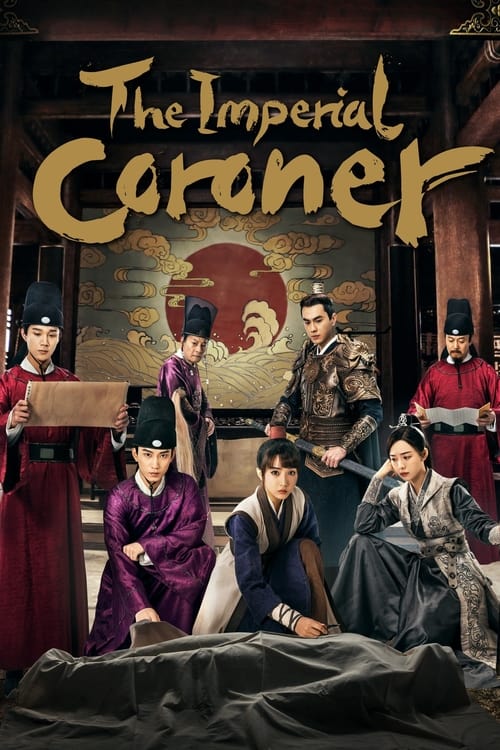
Ask Your Own Question
What is the plot?
In Episode 31 of "La Duda," the episode opens with a tense atmosphere as the characters grapple with the aftermath of recent revelations. The scene is set in the dimly lit living room of the main character, where the air is thick with unspoken words. The protagonist, Laura, is visibly distressed, her brow furrowed as she contemplates the implications of the secrets that have come to light. She paces back and forth, her hands wringing together, reflecting her internal turmoil and uncertainty about the future.
As the scene shifts, we find Laura's friend, Miguel, arriving at her home. He senses her distress and tries to comfort her, but Laura is hesitant to open up completely. Miguel's concern is palpable; he leans in closer, his voice low and soothing, urging her to share what's troubling her. Laura finally reveals her fears about a betrayal that could shatter their close-knit group of friends. The emotional weight of her words hangs in the air, and Miguel's expression shifts from concern to determination as he vows to help her uncover the truth.
The narrative then transitions to a confrontation between Laura and another key character, Patricia. They meet in a café, where the atmosphere is charged with tension. Laura's voice trembles with anger and hurt as she confronts Patricia about her recent actions, which Laura believes have been deceitful. Patricia, defensive and unyielding, counters Laura's accusations, insisting that she has always acted in the best interest of their friendship. The dialogue is sharp and filled with emotional intensity, showcasing the deep rifts that have formed between them.
Following this confrontation, the scene cuts to Miguel, who is now on a mission to gather information. He meets with a mutual acquaintance, who reluctantly shares details about Patricia's recent behavior. The acquaintance reveals that Patricia has been seen meeting with a rival group, which raises suspicions about her loyalty. Miguel's expression hardens as he processes this new information, realizing that the stakes are higher than he initially thought. He resolves to confront Patricia again, determined to protect Laura and their friendship.
Back at Laura's home, she receives a phone call from Miguel, who updates her on his findings. The urgency in his voice ignites a spark of hope in Laura, but it is quickly overshadowed by her lingering doubts. She expresses her fear that the truth might be more painful than the lies they have been living with. Miguel reassures her, emphasizing the importance of facing the truth, no matter how difficult it may be. Their conversation is filled with a mix of hope and despair, highlighting their deep bond and the weight of the situation.
The episode then shifts to a climactic scene where Laura, Miguel, and Patricia come together for a final confrontation. They meet in a secluded park, the tension palpable as they stand in a triangle, each character's emotions laid bare. Laura takes a deep breath, her heart racing as she demands answers from Patricia. The confrontation escalates, with accusations flying and emotions boiling over. Patricia, feeling cornered, finally reveals her motivations, explaining her actions in a way that sheds light on her perspective. The revelation is shocking, and the group is left in stunned silence as they process the implications of her words.
As the episode draws to a close, the characters are left to grapple with the fallout of their confrontation. Laura, feeling a mix of relief and confusion, realizes that the truth has not brought the closure she hoped for. Miguel stands by her side, offering silent support as they both reflect on the complexities of their relationships. The camera pans out, capturing the trio in a moment of uncertainty, their futures hanging in the balance as they navigate the aftermath of their revelations. The episode ends on a cliffhanger, leaving viewers eager to see how the characters will move forward from this pivotal moment.
What is the ending?
In the ending of "La Duda," episode 31, the tension between the characters reaches a climax as secrets are revealed and relationships are tested. The episode concludes with unresolved conflicts, leaving the characters in a state of uncertainty about their futures.
As the episode unfolds, we find ourselves in a dimly lit room where the atmosphere is thick with tension. The main characters, each grappling with their own dilemmas, gather for a confrontation that has been building throughout the season.
Scene 1: The Confrontation The episode opens with a close-up of Laura, her face a mixture of determination and fear. She stands at the center of the room, surrounded by her friends and family, who are all aware that the truth about her past is about to come to light. The camera pans to her brother, who looks anxious, his hands fidgeting as he waits for Laura to speak. The air is heavy with anticipation as Laura finally reveals the secret she has been holding onto, her voice trembling but resolute.
Scene 2: The Fallout As Laura's confession hangs in the air, the reactions of those around her vary dramatically. Her best friend, who has always supported her, looks shocked and betrayed, while others express anger and disappointment. The camera captures the raw emotions on their faces, highlighting the fractures in their relationships. Laura's brother steps forward, his expression a mix of concern and frustration, urging her to explain herself further. The tension escalates as accusations fly, and the group begins to splinter, each person retreating into their own emotional turmoil.
Scene 3: The Resolution In the following scene, we see Laura alone, sitting on a park bench, her face buried in her hands. The weight of her choices bears down on her, and she reflects on the consequences of her actions. The camera zooms in on her eyes, filled with tears, as she grapples with feelings of guilt and regret. Just then, her brother approaches, and the two share a heartfelt conversation. He expresses his disappointment but also his unwavering support, reminding her that they are family and will face the challenges together.
Scene 4: The Future The episode closes with a montage of the characters moving forward in their lives. Laura is seen taking small steps towards redemption, attending therapy sessions and reconnecting with her friends. Her brother stands by her side, offering encouragement. Meanwhile, other characters are shown dealing with their own struggles, hinting at the ongoing conflicts that remain unresolved. The final shot lingers on Laura, a determined look on her face as she walks away from the camera, symbolizing her journey towards healing and self-discovery.
In summary, the ending of "La Duda," episode 31, encapsulates the emotional turmoil of the characters as they confront their pasts and the impact of their choices on their relationships. Each character is left at a crossroads, with the promise of growth and change hanging in the balance.
Is there a post-credit scene?
In "Episode 31" of "La Duda," there is no post-credit scene. The episode concludes without any additional content after the main storyline wraps up. The focus remains on the resolution of the episode's central conflicts and character developments, leaving no lingering scenes or teasers for future episodes. The narrative ties up the emotional arcs of the characters, providing a satisfying closure to the events that transpired throughout the episode.
How does the character's backstory influence their actions in this episode?
The protagonist's backstory reveals a traumatic event that shapes her decisions throughout Episode 31. Her past experiences of betrayal and loss drive her to seek justice, making her more resolute and emotionally charged as she confronts her adversary.
What conflict arises between the main characters in Episode 31?
In Episode 31, the tension escalates between the protagonist, who is grappling with her moral dilemmas, and her adversary, who is determined to undermine her at every turn. This conflict is intensified by personal stakes, as both characters have deep emotional investments in the outcome.
What pivotal moment occurs that changes the direction of the plot in Episode 31?
A pivotal moment in Episode 31 occurs when the protagonist uncovers a crucial piece of evidence that could turn the tide in her favor. This discovery not only heightens the stakes but also forces her to confront her own fears and insecurities.
How do the relationships between supporting characters evolve in this episode?
In Episode 31, the relationships between supporting characters undergo significant changes as alliances shift. A previously loyal friend begins to question their loyalty, creating a rift that adds complexity to the main character's journey.
What emotional struggles does the protagonist face in Episode 31?
Throughout Episode 31, the protagonist grapples with feelings of doubt and fear as she navigates her moral choices. Her internal struggle is palpable, as she weighs the consequences of her actions against her desire for justice, leading to moments of vulnerability and strength.
Is this family friendly?
In "Episode 31" of "La Duda," there are several elements that may be considered objectionable or upsetting for children or sensitive viewers.
-
Emotional Conflict: The episode features intense emotional scenes where characters experience significant distress, which may be overwhelming for younger audiences.
-
Family Tension: There are moments of conflict between family members that could be uncomfortable, showcasing arguments and misunderstandings that may resonate negatively with children.
-
Themes of Betrayal: The narrative includes themes of betrayal and mistrust, which could be distressing for sensitive viewers, as characters grapple with feelings of hurt and disappointment.
-
Dramatic Revelations: The episode may contain dramatic twists that lead to emotional upheaval, potentially causing anxiety or discomfort.
-
Mature Discussions: Some conversations may touch on adult themes or complex relationships that might not be suitable for younger viewers.
These aspects contribute to a narrative that, while engaging, may not be entirely family-friendly for all audiences.















